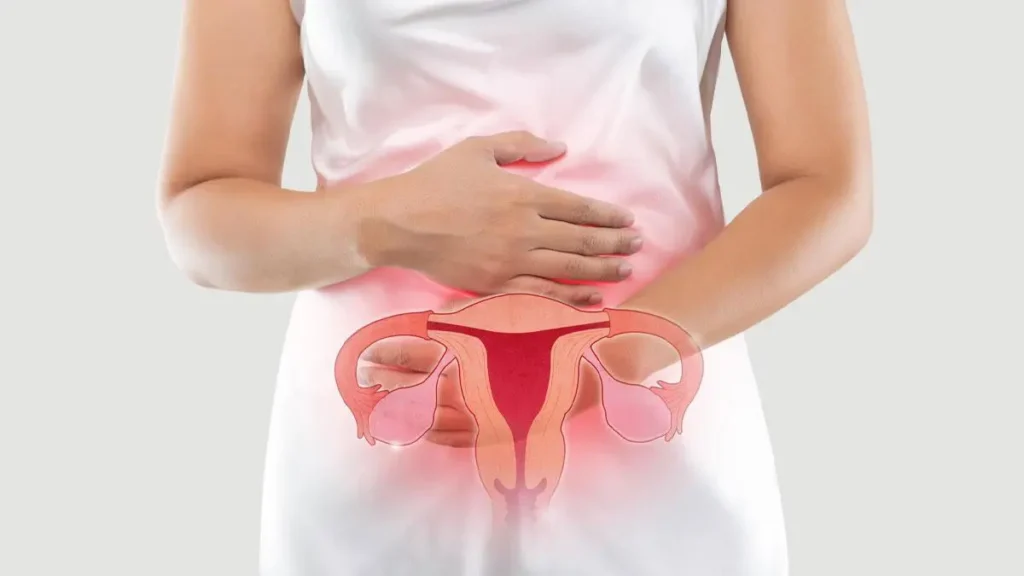
Managing PCOS: Lifestyle Changes for Better Health
PCOS can really mess things up for you, doesn’t it? One minute you’re coasting through life, the next you’re facing crazy period problems, unwanted hair growth, weight fluctuations, and fertility struggles. It’s enough to make any woman want to pull her hair out!
But listen up, PCOS warriors – you don’t have to just accept defeat here. There are absolutely ways you can take back control and manage your symptoms through some key lifestyle adjustments.
Before we get into it, let’s do a quick refresher on what PCOS actually is since half the battle is understanding the problem we’re dealing with. Polycystic ovary syndrome is a hormone imbalance where our ovaries pump out higher than normal levels of testosterone and other male hormones. This imbalance then causes all those delightful issues like the ones I mentioned.
Now, there’s no magic pill for PCOS (I wish there was, though!), but we can absolutely get a better handle on those out-of-whack hormones and intruding symptoms through our daily habits and mindset. Making some adjustments to our diet, exercise routine, stress levels, and sleep habits can legitimately make a world of difference in our PCOS journey.
Table of Contents
ToggleFood Choice is Crucial
Let me start by saying, paying close attention to what we’re putting in our mouths is pretty much non-negotiable with PCOS. The types of foods we eat play a massive role in either minimizing or exacerbating our symptoms. And no, I’m not about to suggest some extreme, restrictive diet that leaves you hangry and deprived. And to be real nobody got time for that!
But here’s the deal – regulating our blood sugar levels is key for managing PCOS. And the best way to do that? Cut back on the refined carbs and sugars that send our blood sugar levels spiking and then crashing. Instead, we should fill our plates with nutrient and fiber-rich foods that digest slowly and prevent those blood sugar swings.
I’m talking loading up on veggies, fruits, beans, lentils, nuts, and seeds. And balancing that out with lean proteins like chicken, fish, tofu, and eggs to keep us satisfied. Overeating is also a no-no since it can promote weight gain, which tends to worsen PCOS issues. So watch those portions, meal prep to avoid mindless snacking, and keep those processed, fried, sugary treats to a minimum.
Regular Exercise
Diet is crucial, but so is exercise for managing PCOS. Getting regular physical activity quite literally helps put our hormones back in balance by lowering insulin levels, improving insulin sensitivity, and torching extra calories to prevent weight gain.
Now, I’m definitely not suggesting you need to suddenly become a gym rat or marathon runner or anything extreme like that. ANY movement and activity you can incorporate into your day is better than none. We’re aiming for at least 30 minutes most days, whether that’s walking, swimming, cycling, hitting up a workout class, or dancing it out at home to some Bollywood songs (no judgement!).
If weight loss is one of your goals, be sure to add in some strength training too. Building lean muscle by lifting weights or doing bodyweight exercises will boost your metabolism, leading to burning more calories throughout the day.
Don’t Take Stress
Being a woman with PCOS is inherently stressful. We’re dealing with so many frustrating physical and emotional symptoms day in and day out. But get this – research shows high-stress levels can actually make our PCOS worse by further disrupting our hormone balance.
That’s why managing our stress has to be a top priority if we want to get our PCOS under control. I’m talking regularly practicing relaxing activities and giving our minds a break. Yoga, meditation, deep breathing, journaling, reading, taking baths – whatever calms you down and helps you reset.
PCOS can seriously mess with our emotional and mental health, so taking time to relax is just as important as the diet and exercise components. We’ve got to care for our minds just as much as our bodies here.

Take Proper Sleep
Which brings me to my next point – quality sleep is also crucial for keeping our hormones balanced when we have PCOS. Being chronically sleep deprived can completely disrupt our hormone regulation, undoing all the hard work of our other lifestyle adjustments.
I know getting enough shut-eye is easier said than done sometimes. But we have to prioritize getting 7-9 hours each night and creating good sleep habits. That means having a calming pre-bed routine, limiting screen time before bed, keeping things cool and dark in the bedroom, and avoiding big meals or intense exercise too close to bedtime.
If you’re really struggling to get quality sleep, don’t just resign yourself to running on empty. Talk to your doctor about strategies to improve your sleep hygiene.
Healthy Supplements
While making those big lifestyle adjustments should be the main focus for managing PCOS, certain supplements may provide some bonus benefits under proper medical guidance. Some research suggests vitamin supplements and antioxidants could potentially help with various PCOS symptoms.
But please, do NOT just start popping a ton of random pills you bought online! Get your doctor’s okay first and follow their precise dosage instructions. Too much of certain supplements may actually make our PCOS worse or dangerously interact with any meds we’re taking.
You can contact Hale Clinics for the Best Endocrinology Services in Mohali, where their team of expert endocrinologists provides exceptional advice and treatment, ensuring you receive top-notch care.
Conclusion
Before wrapping this up, I do want to emphasize that you should absolutely involve your doctor in any major lifestyle changes you’re making, especially when it comes to supplements. They know your full medical history and can provide personalized guidance on the best approaches for you.
If you live close to Chandigarh, you can definitely plan on scheduling an appointment at Hale Clinics, where you’ll find the Best Gynaecologist in Mohali. At the end of the day, my PCOS sisters, you’ve got to find what works best for your own unique situation. It’ll likely involve a blend of diet adjustments, exercise, stress management, sleep habits, and potentially some doctor-approved supplements. Be patient and consistent – these changes take time, but they’re so worth it when you start feeling more energetic, balanced, and in control of your body again.
FAQs:
1. What is PCOS?
Ans. PCOS stands for polycystic ovary syndrome, which is a hormonal imbalance where the ovaries produce higher than normal levels of male hormones like testosterone. This imbalance can cause symptoms like irregular periods, excess hair growth, weight fluctuations, and fertility issues.
2. How can diet help manage PCOS?
Ans. Focusing on a diet with nutrient-dense, high-fiber foods like vegetables, fruits, beans, lentils, nuts and lean proteins can help regulate blood sugar levels and prevent spikes and crashes that worsen PCOS symptoms.
3. Why is exercise important for PCOS?
Ans. Regular exercise helps lower insulin levels, improve insulin sensitivity, and burn extra calories to prevent weight gain – all of which can positively impact hormone balance in PCOS. Aim for at least 30 minutes of activity most days.
4. How does stress affect PCOS?
Ans. High stress levels can further disrupt hormone balance and worsen PCOS symptoms. Managing stress through relaxing activities like yoga, meditation, and deep breathing is crucial.
5. What role does sleep play in PCOS management?
Ans. Getting 7-9 hours of quality sleep per night is important for regulating hormones with PCOS. Poor sleep can undo the benefits of other lifestyle changes.
